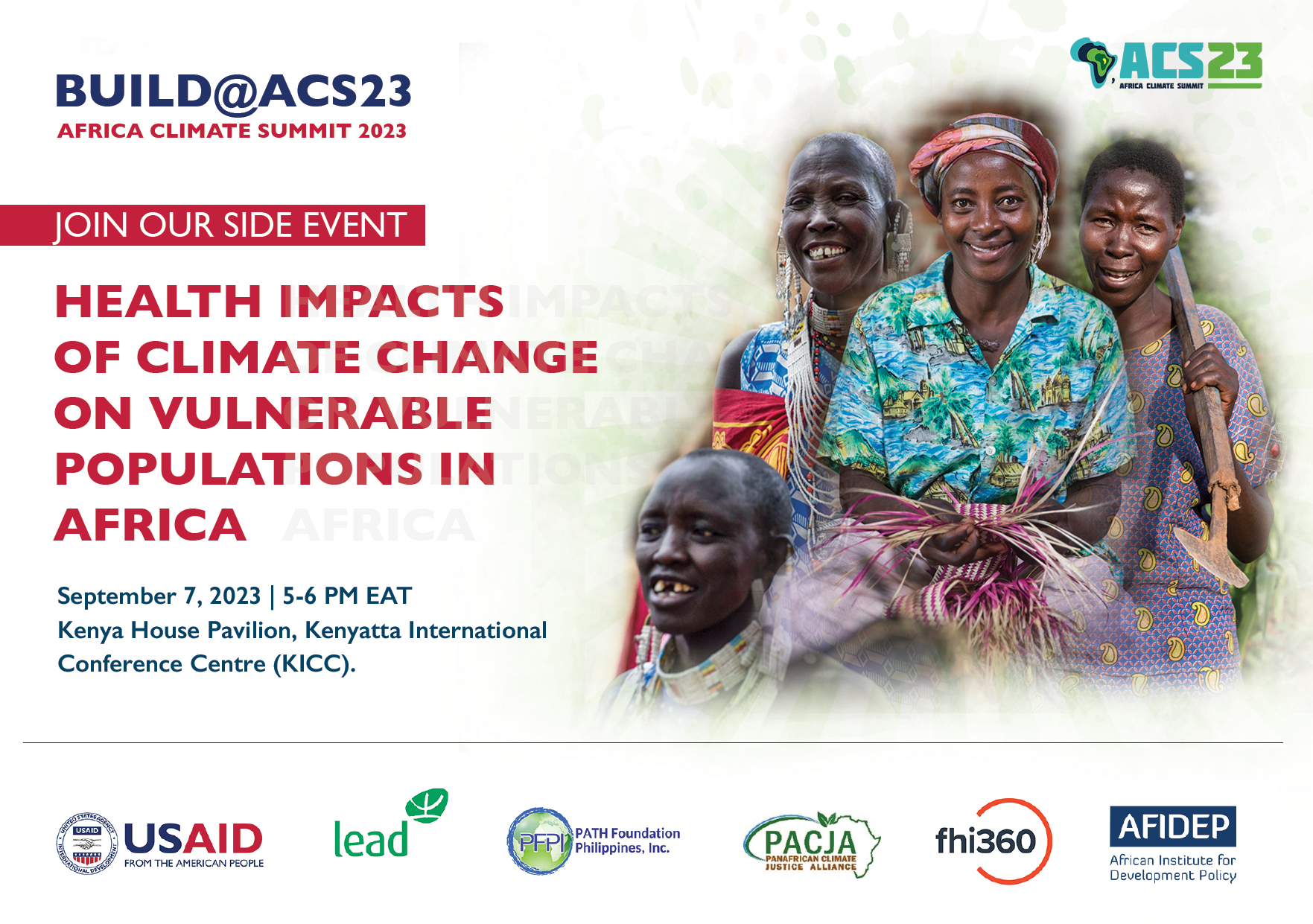Blogs

The USAID-funded Building Capacity for Integrated Family Planning/Reproductive Health and Population, Environment and Development Action (BUILD), jointly with partners, will host a side event at the Africa Climate Week-cum-Summit set to hold from 4-8 September in Nairobi, Kenya.
The side event on the 7 September 2023 between 5-6 pm EAT, will focus on climate change and health and is informed by the fact that climate change is a defining crisis for our generation and sustainable development.
Climate change impacts include increased frequency and intensity of extreme weather events, with adverse effects on food and water security, human health, and livelihoods. Regions and people with considerable development constraints, such as poverty, poor governance, limited access to essential services and resources, conflict, and climate-sensitive livelihoods, have high vulnerability to climatic hazards. Low-and Middle-Income Countries (LMICs), mainly in Africa, South Asia, Central and South America, and Small Island Developing States, are climate change hotspots with high human vulnerability.
As noted by various reports of the Intergovernmental Panel on Climate Change (IPCC), past, present, and future patterns of human development are powerful forces in determining vulnerability.
Persistent patterns of unsustainable consumption and production, unsustainable use of natural resources, and population growth all present challenges to our ability to navigate the negative impacts of a changing climate. The objectives of the side event include:
- Sensitize climate stakeholders on the interlinkages between climate change and population dynamics and the vital role of empowering women and youth in climate adaptation and building resilience in LMICs
- Foster dialogue on the vulnerabilities attended by climate change to communities as well as gender dynamics vis a vis adaptive capacity on climate change
- Advocate for climate adaptation measures that include strengthening health services and health systems in LMICs, including access to voluntary family planning and reproductive health.
The BUILD Project brings together southern leadership and organizations from Africa, Asia, and the USA that, together, have proven technical expertise in promoting cross-sectoral interventions in Population-Environment-Development (PED) and in advocating for voluntary family planning (FP) and capacity strengthening. They include; the United States Agency for International Development (USAID), the African Institute for Development Policy (AFIDEP), Leadership for Environment and Development Southern and Eastern Africa (LEAD SEA), PATH Foundation Philippines Inc. (PFPI), FHI360, and the Pan-African Climate Justice Alliance (PACJA).

